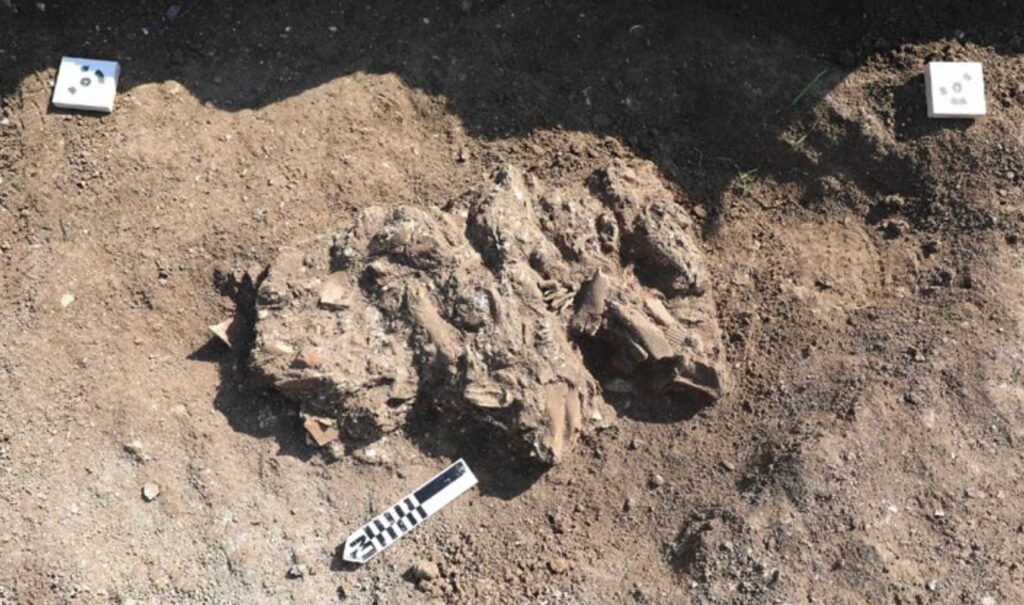Evidence of Roman Soldiers' Pig Sacrifice Identified in Israel
- archaeology.org language
- 2025-05-20 01:00 event
- 4 months ago schedule


Domain FALEARN.com for sale! This premium domain is available now at Kadomain.com

Nasser, Suez, and the Muslim Brotherhood JamesHoare Wed, 05/21/2025 - 09:14
After more than 10 years of excavation, investigation and study, the megaliths of the Neolithic tomb on Küsterberg hill near the city of Haldensleben in central Germany, have been reconstructed as th
TURPAN, CHINA—According to the Greek Reporter, Chinese archaeologists identified a large-scale 2,000-year-old necropolis near the […] The post More Than 200 Burial Mounds Found at Site Near Si
MAIDEN CASTLE, ENGLAND—In the 1930s, British archaeologists Tessa and Mortimer Wheeler discovered a grisly cemetery […] The post New Research Revises Story of Maiden Castle Cemetery appeared f
MANITOWOC, WISCONSIN—Popular Science reports that a Wisconsin fisherman happened upon the wreck of the legendary […] The post Wreck of Legendary Tugboat Identified in Lake Michigan appeared fi
William "Box" Peel Jones was an enslaved African American who, in 1859, was shipped in a box from an unknown location to the home of the abolitionist William Still (1819-1902) in Philadelphia and then
Medieval Fogge: In Defence of the Middle Ages JamesHoare Tue, 05/20/2025 - 09:14
A rare gilded Anglo-Saxon cross that may have belonged to a church leader has been acquired by the Leeds Museums and Galleries. The cross is was made of solid silver completely covered with a thin lay
The Victorians, Creation, and the Dinosaur Problem JamesHoare Tue, 05/20/2025 - 08:00
TEL MEGIDDO, ISRAEL—According to the Greek Reporter, mysterious pig remains buried at the site of […] The post Evidence of Roman Soldiers' Pig Sacrifice Identified in Israel appeared first on
HAMBURG, GERMANY—Workers unearthed 30 Late Bronze Age funerary urns during installation of a drainage channel […] The post Bronze Age Urnfield Necropolis Discovered on German Road appeared fir
PAROS, GREECE—In ancient Greece, marble from the Cycladic island of Paros was a much sought-after […] The post Greek Sculpture Workshop Uncovered in Paros appeared first on Archaeology Magazin
Roman women faced legal, ideological, and cultural limitations in several areas of their lives; deep-rooted traditions regarding the role of women in the Roman world resulted in pre-conceived views wh
‘Hitler’s Deserters’ by Douglas Carl Peifer review JamesHoare Mon, 05/19/2025 - 09:01
Philostratuss Heroikos, composed during the flourishing of the Second Sophistic, stands as a deeply layered literary and cultural artifact of the Roman Empire in the Severan period. Aitken and Maclean
The Hidden Diary of Samuel Pepys JamesHoare Mon, 05/19/2025 - 08:44
The Sarcophagus of the Spouses, a terracotta sarcophagus from the 6th century B.C. that is the most iconic masterpiece of Etruscan art, is undergoing an comprehensive new restoration in public view. T
The Museum of Chelmsford has acquired the Great Baddow Hoard, the largest recorded hoard of Iron Age gold coins ever found in Britain. It very nearly disappeared before it was even known to exist, but
A Roman octagonal finger ring that looks like a nut without threads has been discovered is a former drainage ditch in Lincolnshire during an excavation by Wessex Archaeology. It is a ring of the Henig